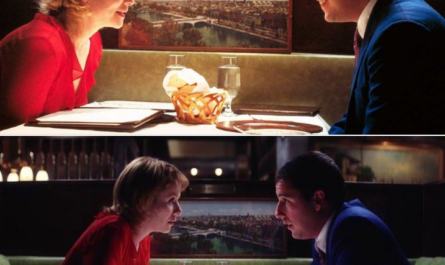In Quentin Tarantino’s masterpiece “Django Unchained,” Jamie Foxx delivers a tour de force performance as the titular character, Django Freeman. A former slave turned bounty hunter, Django’s journey is one of vengeance, redemption, and the pursuit of freedom. Yet, beneath the surface of his stoic exterior lies a character of remarkable depth and complexity. In this article, we’ll delve into the intricate layers of Django’s persona, exploring the motivations, contradictions, and symbolism that define him as one of cinema’s most compelling protagonists.
Driven by Revenge
At the heart of Django’s character lies a burning desire for revenge. Enslaved and brutalized by the sadistic plantation owner, Calvin Candie, Django’s sole motivation is to rescue his wife, Broomhilda, and exact vengeance upon those who have wronged him. This relentless pursuit of justice fuels his every action, driving him to master the art of bounty hunting and ultimately confront Candie in a climactic showdown.
Django’s thirst for revenge is palpable throughout the film, manifesting in moments of steely determination and unwavering resolve. His quest for justice becomes a driving force, propelling him forward through a series of perilous encounters and moral dilemmas. It is this single-minded focus that defines Django’s character and sets him apart as a force to be reckoned with.
Compassion and Loyalty
Despite his vengeful mission, Django is not devoid of compassion or loyalty. His love for Broomhilda serves as a guiding light, motivating him to endure unimaginable hardships and face insurmountable odds in order to rescue her from captivity. This deep, unwavering bond is the driving force behind Django’s actions, imbuing his character with a sense of humanity and emotional depth.
Furthermore, Django exhibits moments of kindness and empathy towards others, demonstrating a capacity for compassion that belies his hardened exterior. From his interactions with a fellow slave to his treatment of allies and adversaries alike, Django’s actions are often guided by a sense of moral integrity and loyalty to those he cares about.
Adaptability and Resourcefulness
Throughout his journey, Django demonstrates remarkable adaptability and resourcefulness in the face of adversity. From his initial escape from slavery to his transformation into a skilled bounty hunter, Django proves himself to be a quick learner and a cunning strategist. He navigates the treacherous landscape of the American South with ease, outsmarting his adversaries and manipulating situations to his advantage.
Django’s resourcefulness is further exemplified by his ability to formulate complex plans and execute them with precision. Whether orchestrating a daring rescue mission or infiltrating Candie’s plantation under false pretenses, Django proves himself to be a master tactician, capable of outwitting even the most formidable opponents.
Moral Complexity
Despite his noble intentions, Django’s actions throughout the film are not without moral ambiguity. While his quest for revenge is understandable given the injustices he has suffered, his methods often border on brutality. From his ruthless dispatching of bounty targets to his cold-blooded execution of Candie, Django’s actions force the audience to confront uncomfortable questions about the nature of justice and the limits of morality.
Yet, amidst the violence and chaos, Django’s character remains a beacon of righteousness, driven by a sense of justice and a desire to right the wrongs of the past. His moral complexity serves as a mirror for the audience, challenging them to grapple with the complexities of right and wrong in a world defined by oppression and injustice.
Symbolic Representation
In many ways, Django can be seen as a symbolic representation of the fight for freedom and resistance against oppression. His transformation from a slave shackled by chains to a free man wielding a gun symbolizes the triumph of the human spirit over adversity. Django’s journey embodies the struggle for agency and empowerment in the face of systemic oppression, resonating with audiences on a deeply emotional level.
Furthermore, Django’s character serves as a powerful commentary on the legacy of slavery and its enduring impact on American society. His quest for vengeance becomes a metaphor for the struggle for racial equality and justice, highlighting the ongoing battle against systemic racism and injustice.
Conclusion
In “Django Unchained,” Jamie Foxx delivers a mesmerizing performance as the complex and enigmatic character of Django Freeman. Driven by a thirst for revenge yet guided by compassion and loyalty, Django is a character of remarkable depth and complexity. Through his journey of vengeance, redemption, and self-discovery, Django emerges as a symbol of resilience, empowerment, and the enduring human spirit.
As audiences continue to unravel the intricate layers of Django’s persona, they are confronted with a character whose complexities mirror the complexities of the human experience. From his unwavering determination to his moral ambiguity, Django stands as a testament to the power of storytelling and the enduring appeal of the cinematic hero.



